|
'In a somer sesun, whon softe was the sonne I lowered me into a lockdown, as I a loon were In habite as an hermite unholy of werkes Wente I wyde though these wryghtings, wondres to here...' The Beginning - and Session 1, Thursday 9th July 2020: Participating (from the top, above, line by line from left to right) Zara Tomkinson, Colin Ellwood, Rachel Bavidge, Helen Budge, John Chancer, Susan Raasay, Marta Kielkowicz, Rob Pomfret, Ami Sayers, Simon Furness, Charlotte Pyke, Jamie Newall, Julia Winwood, Sophie Juge, Hemi Yeroham With Presence’s regular monthly ‘in-the-room’ sessions in Holborn falling victim to the lockdown (our last-scheduled such session, at the end of March, being cancelled at the last moment), and after a slightly perplexed pause, we went full-on virtual with twelve consecutive weekly zoom sessions on Friday afternoons (individual blog posts reachable from the 'March-June Blog Posts' button beneath the account of session 4 below). The basis/set-up for these sessions was the same as for the prior ‘embodied’ ones: a few days before, a general emailed invitation to the group list was sent out, with a first-come-first-served limit of approximately a dozen attendees, each self nominating without knowing the scripts to be featured and with any over-subscription offered the following week’s slot (and with a few tweaks to that model such as the tactical deployment of a random-selection ‘hat’ – actually an Indian carved box - wherever necessary). That way the accustomed, deliciously spontaneous/‘in-reading-discovery’/roles-rotating/no-prep-required effect was maintained. Typically two or three scripts featured in each session; sessions being sometimes built around a theme, sometimes not. We featured new drama, (neglected) classics, international plays and home grown. Writers and translators often attended to hear their work being ‘sounded’ (in both senses of that term). For me at least, a most rewarding aspect of this rather intense frequency and rhythm was witnessing regular participants finding their feet in the zoom format and seeing their offerings deepening, settling and enriching over time, such that they became able to ‘sit’ in an experience and to allow whatever emerged to emerge. This seemed also to have an exemplary effect on comparative new-comers, of whom there were also a good number. It felt like a culture was being created and, hopefully, curated. After twelve swiftly-sequential sessions, it also felt that we were really engaging with the plays, moments and phases of which chimed and sang. All very heartening, and we needed a break to take stock. It was the end of June, suddenly. Where next? And how for that matter, might all this feed into the renewed Presence that we are also, as a company – and as yet vaguely – intending and intuiting to 'light out' towards? Much more of that elsewhere, but that renewed ethos will it is hoped offer a range of opportunities and initiatives oriented around a shared and kindred interest in what might be termed ‘dramatic presence’: in other words in what the American Pragmatist philosopher Thomas Dewey defines as ‘experience’: basically those vertiginous shifts in sensory and cognitive ‘situated-ness’ and perception (both real and ‘imaginative/fictional’) that pretty much all performance and certainly all drama roots in and grows from: the basic human spontaneous ‘now-ness’ of ‘being’ that arises from a sudden tectonic shift in understanding and situation. These are the imaginative campfires at the centre of the forest clearings of the collective human psyche: human gathering and bonding places; offering themselves as locational and correctional signals. Plays, after all, are centrally ways of holding such energy-releasing and orientating moments in train and in tension. Presence looks for plays that offer such intensely energy-releasing moments and then harvest and meld the energy they release and inspire (from the actors) into concerted dramatic action that is richly or ambivalently - even poetically - expressed in and through (often) language. And the experience from our 12 week suggests this can to degree be achieved virtually as well (if not quite as well) as actually. And where it can be done, artists (the commonwealth of actors, writers, directors) are enthusiastic to engage with this on many different terms as long as they are terms of equivalence and as long as no one is being exploited. A resource-light levitation of, well…shared love and enthusiasm. But I partly digress Each year we normally pause the monthly reading group for July, August and early September. But this year, with the new possibilities of zoom to be explored, and enthused by the discoveries and momentum of the earlier regular weekly zoom sessions, we decided to go freeform for a summer season of occasional experiments, improvising different processes and models along the way, and also sometimes trying previously un-reachable categories of text... ...such as a t.v. script, for example. First up was a reading of regular participant Helen Budge’s new t.v. pilot Grey Collar. For this we put out a general call to the group then cast in advance from the responses (as it turned out, an almost miraculously fitting self-selection self-nominated, despite the fact that no-one knew the script or the casting breakdown in advance). No one was turned away, and everyone has substantive things to read. We approaching a couple of people to fill obvious gaps, and in the end we had two/three actors sharing the two leads, with the aim of - as we usually do - generating a variety of different possible 'takes' on each role. In addition to the pre-casting, another innovation was encouraging people to read the script in advance, while also aiming to keep things relatively fluid on the day, so that there could still be an aspect of the spontaneity that is so characteristic of Presence readings. The session itself was all we hoped for and more: stylish, confident insightful, richly textured and bold. The script came across (to me at the time and also judging by the group discussion afterwards) as deft, assured, spare, punchy and contemporary: the slow initial unfolding of a long-form modern day morality tale with a psychological mystery at its heart. The various complex strands of Helen’s intricate narrative felt beautifully ‘placed’, implacably drawing the viewer in. Also heartening were the insightful, practical, granular reflections and responses from the group afterwards. These largely centred around the import of small but vital details in key exchanges and interactions in the script: was the lead character’s boyfriend a controlling idiot, or were we just seeing him (in all-important first impressions) at a bad moment? Regarding the initial encounter between the sympathetic lead character and the Gatsby-esque antagonist, would a small change make their initial-encounter ‘snagging of fates’ more believable? Helen professed all this hugely useful. For Presence, this was further encouragement: evidence that we could vary the ‘casting’ and preparatory approach to the readings to the benefit and enjoyment of participants and the writer, without anyone feeling or being exploited. Mutual enjoyment AND utility, driven by a shared love of the dramatic phenomenon. What next? There followed a gap as we put together a sequence of further possibilities: new writing, international collaborations and challenging classics. By the middle of August (ok, quite a gap...) we were ready to ‘launch’, the aim, aside from continuing to vary the material, was to keep trying a slightly different approach each time. Session 2: Friday 21st August: Participating (from the top, above, line by line from left to right) Ami Sayers, Colin Ellwood, Sakuntala Ramanee, Jamie Newall, Susan Raasay, Valerie Gogan/Simon Usher, David Whitworth, Alex Wadham, Simon Furness, Stephen Cavanagh We have always wanted to tackle the rich text and dramaturgy of Early Modern drama, but the sight-reading spontaneity of our usual practice tends to hit a brick wall with the density of both text and plotting in your typical Elizabethan/Jacobean play. So the general call-out for this session (it was mid August…holiday season…would anyone be available?) was for one of the most knotty and dense texts and plots of all, John Webster’s 1612 tragedy The White Devil. Here was a challenge potentially yielding fantastic dividends if we could fine a way to unlock them, while at he same time preserving the groups characteristic reading spontaneity. The plan was to pre-cast from whoever answered the call-out, approaching others directly as necessary to fill any obvious gaps. Participants would then be informed in advance of their ‘casting’ and offered an hour’s prep/rehearsal by zoom in the couple of days prior, to tackle the language, talk about character or clarify plot and situation, whichever was felt most useful. This would then be supplemented on the day with brief synopses of each upcoming scene as we read, just to remind people of the core action in each. We got almost the perfect number of volunteers for all of the main roles, some shared, and decided that ‘White Devil’ herself Vittoria Corombona’s five 'marquee/tour de force' scenes should be shared between the five women participating. The brief ‘rehearsals’ seemed enjoyable, validating and clarifying, and allowed us to discover many useful and energising things, while acting to ‘release’ rather than to ‘impose’. And then on the day itself we gradually discovered this most supple, packed and theatrically powerful of plays. What struck me most about the reading was the energised and sure-footed commitment of all, and the finely calibrated series of psychological studies and carefully nuanced, charged relationships that slowly, measuredly emerged. Webster seems to have spent years writing the play and it (in a good way) showed. Central amongst the intricately unfolding strands was the story of the talented but impoverished Corombona family: the (eldest) daughter Vittoria; elder son Flamineo, and the youngest and least tainted of the siblings, Marcello - this latter the untainted apple of his widowed mother’s eye. All are thrust into a vortex of aristocratic desire, power and frustration embodied by the mercurial, immature 'subaltern' aristocrat Duke Brachiano, who in his desire for Vittoria lunges to escape what he perceives as the smothered affections of an older - and much more psychologically mature – wife, Isabella, and her controlling ‘Capo’ brother the Duke of Florence, backed up by the arid, cheeseparing misogyny of Cardinal Montecelso, soon Pope. Other beautifully and sparingly etched psychological portrayals are the menacing, banished Duke Lodovico - another junior noble beadily eyeing Brachiano as the close rival he is determined to destroy; the all-seeing, much-abused and strangely accepting Zanche the moor, Vittoria’s maid, and the plangent and ultimately tragic figure of the siblings’ mother Cornelia. Even what can seem on the page as incongruous, such as the latterly bizarre, almost absurdist, fish-out-of-water, voyeuristic behaviour of the Duke of Florence, in the reading/performsance acquired a sinister, odd, edgy, ambivalent psychological currency (is he in love with Vittoria or are his motives darker or more psychotic than that?) . What emerged was far from the genre-constrained blood-fest of reputation, but a supple, well-observed and deeply felt drama, hugely insightful in its psychology and in its class awareness. Overall the reading was measured, immensely committed, and also – as importantly – still charged with a sense of spontaneity, lifting and energising the limited prep we had managed to do. The general feeling afterwards that with this approach, a whole new and very exciting tranche of repertoire and a mode of exploring it is potentially opening up for Presence and for the group. Session 3: Mon 31st August: Participating (from the top, above, line by line from left to right) Zara Tomkinson, Colin Ellwood, Ami Sayers, Layla Jalaei, Susan Raasay, Hemi Yeroham, Adam Tyler, Anthony Ofoegbu, Alexis Diamond, Kevin McMonagle, Jack Paterson, Sakuntala Ramanee, Marie-Hélène Larose-Truchon Building on the discoveries of all the above, we then expanded to international horizons, in a co-endeavour with Canadian director Jack Paterson and his company BoucheWHACKED. Jack offered us a choice of three Quebecois texts in translation. Of these, for me, the clear standout was Midnight by Marie-Hélène Larose-Truchon in translation by Alexis Diamond. An extraordinary rich, bold, theatrical and beautifully shaped dystopian tale of three generations of women – Grandma, Midnight and Girl – trying to hold on to memories, family, culture, lore and language in the stark corrosive searchlight of a decidedly male and bleakly utilitarian regime that denies all aspects of the past - including old age - as well as subjugating all aspects of the feminine. And that polices its sleazy, misogynist regimen by means of a children’s army of brainwashed adolescent ‘angel-knights’. One of the latter seems tentatively to fall for Girl, but is this simply a device for getting access to Grandma in order to euthanize her, as the ‘law’ demands for all elders? Meanwhile Girl is slowly introduced to the family mythology of her birth and of her mother's childhood; then to the ‘coven’ of the family's cross-generational matriarchy and to their illicit ‘word and memory hoard’ of which the ultimate custodian is Grandma. Hovering in the background is Girl’s father, The Electrician - the ex-lover of the steely but wayward (and electricity- and attention-addicted) Midnight - a fixer and amateur taxidermist (death AND the past, there…) who still holds a candle (literally) for the mother of his daughter. This is a tale that comments on society in its current present-tense, utilitarian fixation, but also offers a myth of growing up and growing out, of accepting death and understanding the transitory, evanescent preciousness of memory and experience. An extraordinary, lyrical, linguistically-soaring, theatrically sure-footed, deeply and richly imaginative and original play, miraculously translated by Alexis Diamond . For this we cast specifically from within the reading group, double casting pretty much each role (except one), and with the actors either alternating scene by scene in a role or splitting the role into consecutive halves, whichever seemed more appropriate. And again, as with White Devil, over the preceding couple of days we had brief solo sessions on zoom with most of the performers. The results, the reading itself, seemed to soar. Playwright Marie-Hélène and translator Alexis professed themselves 'over the moon' with the results. The play was a joy to engage with, to explore and to read. Would that dramatic writing of this quality, deftness and imaginative heft were more available in the UK. MIDNIGHT (MINUIT) photo: Javier Allegue Barros @ unsplash.com On 31st August members of the Presence reading group had live-read via zoom a translation by Alexis Diamond of Quebecois playwright Marie-Hélène Larose-Truchon's play MIDNIGHT, joined for the event by Canadian director Jack Paterson, translator Alexis Diamond and possibly the playwright herself. In an act of resistance against a despotic government that hunts down seniors and sucks their memories dry, the irrepressible Midnight keeps her mother in hiding, to protect her and her daughter and their secret world. They swap knowing smiles and lost words while braving a lack of food and light, driven mad with love, anger, fear. This homage to a fading civilization stirs up snow and subversion, ancestral culture and instinct: craved, warped, misused, a past re-animated and electrified, just like new. This translation was commissioned by Talisman Theatre, artistic director Lyne Paquette. Translation dramaturgy was provided by Linda Gaboriau. Dramaturgical support for the translation was provided by Playwrights’ Workshop Montréal (PWM), artistic and executive director Emma Tibaldo. Cast includes: Layla Jalaei Kevin McMonagle Anthony Ofoegbu Susan Raasay Sakuntala Ramanee Ami Sayers Zara Tomkinson Adam Tyler Hemi Yeroham Marie-Hélène Larose-Truchon (Playwright) A year after graduating from the National Theatre School of Canada’s francophone playwriting program, Marie Hélène Larose Truchon won the Le théâtre pour les jeunes publics et la relève playwriting award for her play Reviens!, and received special mentions at the Prix Gratien-Gélinas for Minuit (2013) and Un biseau m’attend (2015). The latter two plays were given staged readings (in 2014 and 2015 respectively) at the Centre de auteurs dramatique’s Dramaturgies en dialogue festival in Montreal. A coproduction of Minuit by the Théâtre Double Signe and the Petit Théâtre de Sherbrooke was presented in Sherbrooke (2017) and Montreal (2018). Marie Hélène teaches playwriting at the National Theatre School of Canada French language program and is working on several writing projects for all-ages audiences. Her play Crème-Glacée was produced by Théâtre La Seizième (Vanco Alexis Diamond (Translator) Alexis is an anglophone theatre artist, opera and musical librettist, translator and theatre curator working on both sides of Montréal’s linguistic divide. Her award-winning plays, operas and translations have been presented across Canada, in the U.S. and in Europe. She also collaborates internationally with artists on performance-installations involving text, movement and sound. In 2018, Alexis began a multiyear collaboration with professor Erin Hurley (McGill University) and Emma Tibaldo (Playwrights’ Workshop Montréal) researching the history of English-language theatre in Québec. In May 2019, Alexis Diamond served as co-artistic director of the famed Festival Jamais Lu, where she presented the mostly French-language Faux-amis with co-author Hubert Lemire, supported by CALQ. Her theatre translations are also in wide circulation: upcoming tours include The Problem with Pink by Érika Tremblay-Roy, published by Lansman (Le Petit Théâtre de Sherbrooke), and Pascal Brullemans’ The Nonexistant (DynamO Théâtre). Three translations were presented in the 2018-19 season (for Geordie Productions 2Play-Tour, Talisman Theatre and Le Petit Théâtre de Sherbrooke). Her translation of Pascal Brullemans’ plays for young audiences, Amaryllis and Little Witch, was just published by Playwrights Canada Press. Currently the Quebec Caucus representative for the Playwrights Guild of Canada, she is co-founder of Composite Theatre Co. and a long-standing member of Playwrights’ Workshop Montréal. She has a B.A. in Creative Writing (Concordia University) and an M.A. in English Studies (Université de Montréal). About Francophone Canadian Theatre Quebecois and francophone Canadian playwrighting is on forefront of international playwriting - their work is translated and presented all over the world. Like much European writing, Quebecois texts are written to engage the artists involved as well as their audience. Textual presentation does not define production but engages in theatrical imagination and expression, embracing metaphor as much as much as English Language writing often embraces the well-made play. In short, the text is often only the beginning of the theatrical conversation. It’s particularly hard to describe the unique “Langue D’Auteur” created by Francophone Canadian artists as there’s nothing quite like it in Western English Language theatre. Imagine Shakespeare, Moliere, Sarah Kane and Martin Crimp smashed together. It was developed in part to allow Quebecois artists to write for French language touring without sacrificing their own cultural and linguistic identity, and in part as a textual equivalent to the remarkable physical theatre and literature of the culture. It is a textual place where there are no rules or the rules are meant to be smashed. The poetic or expressionistic are side by side with gritty realism and the mundane often becomes the fantastical. BoucheWHACKED! Theatre Collective (Vancouver, Canada BoucheWHACKED! Theatre Collective is a Vancouver based collective made up of working theatre professionals dedicated to the development, production and presentation of multi language works, cross disciplinary practices and works in translation. With a specific focus on cross pollination between International, Canadian Francophone and Anglophone artists, BoucheWHACKED! aims to bring together the thriving talent that exists in communities separated by distance, language, and culture. www.bouchewhacked.co Jack Paterson Launching from Vancouver, Jack is an award winning director, divisor, dramaturge, translator, actor and creative producer whose study and practice has taken him across Canada, the United Kingdom and around the world. His work has ranged from contemporary devising, cross-cultural and multi-disciplinary projects to main stage and classical theatre in contemporary form. Recent projects include collaborating on the Global Hive Labs. international devised creations Atlantide (Teatro Trieste 34, Italy) and Medusa (Steppenwolf Theatre, USA & The Pleasance and Cockpit Theatres UK), leading the cross-cultural devised creation Balinese Folk Tales (SENI Indonesian Institute for the Arts Denpasar), dramaturgy for the disability arts project Cowboy Tempest by Niall McNeil (Vancouver). Last fall, he spent three months with the German innovation incubator flausen+ (theatre wrede+, Germany). www.jackpatersontheatre.com SUMMER SUSTAINED. 14TH OF SEPTEMBER. Session 4: Monday 14th September: Participating (from the top, above, line by line from left to right) Jennifer Woodward, Colin Ellwood, Jamie Newall, Carla Grauls, David Whitworth, Rachel Bavidge, Alex Wadham, Charlotte Pyke, Kevin McMonagle And finally - more SUMMER SUSTAINED than SUMMER SEASON - back to the UK to read Carla Graul’s Nick Darke Award winning (but not yet performed) Made For Him, with the writer attending. Another sharply dystopian and disturbing take on the future, or maybe just an intensified look at the present, this time focusing on misogyny and A.I., while also exploring the nature and definition of ‘reality’ – perfection or with flaws… A future-world sex-doll is given innovative emotional circuitry, and in her/its development phase almost has a secret affair with a ‘real’ woman - the cleaner in the laborotory in whicnh she is being developed, In parallel she is being made to satisfy the sexual demands of her human developer. These scenes are cleverly interspersed with encounters from her later life with her new purchaser. In these latter, the combination of her new emotional circuitry and perhaps the memory of her bond with the cleaner make her unsatisfied with what her new ‘owner’ offers and expects, and she yearns for much more than the emotionally stunted stale male ‘consumer’ can offer. Some very dry, dark humour here on male behaviour and status anxiety add to the unsettling cleverness of the double time-sequence (we don’t know that the alternate scenes are in different time phases and that the central character in each is the same ‘doll’ until quite late) in a drama that anatomises human desire (specifically male desire) as it manifests in an acquisitive consumerist society. The emotional circuitry of ‘Beta Iris’ is too much for purchaser ‘George’ and indeed for the android herself, so she makes her escape/is decommissioned, while he goes back to a less advanced model with fewer human characteristics, so in George’s terms, fewer flaws and more 'real'. A wonderfully ambivalent ending – ambiguously placed in time – where she seems to feel a sense of agency/freedom as a collector of almost extinct moths… The tone of the whole play is deliciously deadpan and deeply disconcerting. For this session we put out a general call, knowing that we needed more-or-less equal numbers of male/female participants (and that’s what we got); then in the standard Presence way, we spontaneously shifted roles around scene by scene, so everyone got (I think) a go at pretty much all the main characters and pretty equal opportunities overall. original photo by: I-Am Nah @ unsplashed.com We are pleased to announce our next reading exploration: a new play by Carla Grauls. On the 14th of September members of the Presence reading group will live-read via zoom Made For Him, which has not been previously read or performed in public. We will be joined for the event by the author. A full account on our reading group blog soon. Participants/Readers to include: Rachel Bavidge, Kevin McMonagle, Jamie Newall, Charlotte Pyke, Susan Raasay, Zara Tomkinson, Alex Wadham, David Whitworth, Jennifer Woodward
Carla Grauls Carla is an award winning writer based in London. Her play Me Myself I was performed at the Vaults Festival this year. In 2018, she was selected for Audible's Emerging Playwrights Fund and wrote Life Ever After. In 2017, she was shortlisted for the Yale Drama Series Award for her play Natives. In 2016, she was selected to write a short play for Promised Lands, a playwriting festival based in Milan. In 2014, her play Occupied was produced at Theatre503. In 2013, she won the Nick Darke Award.
0 Comments
Leave a Reply. |
INDEX of dates:
INDEX of playwrights and plays:
INDEX of contributors:
|

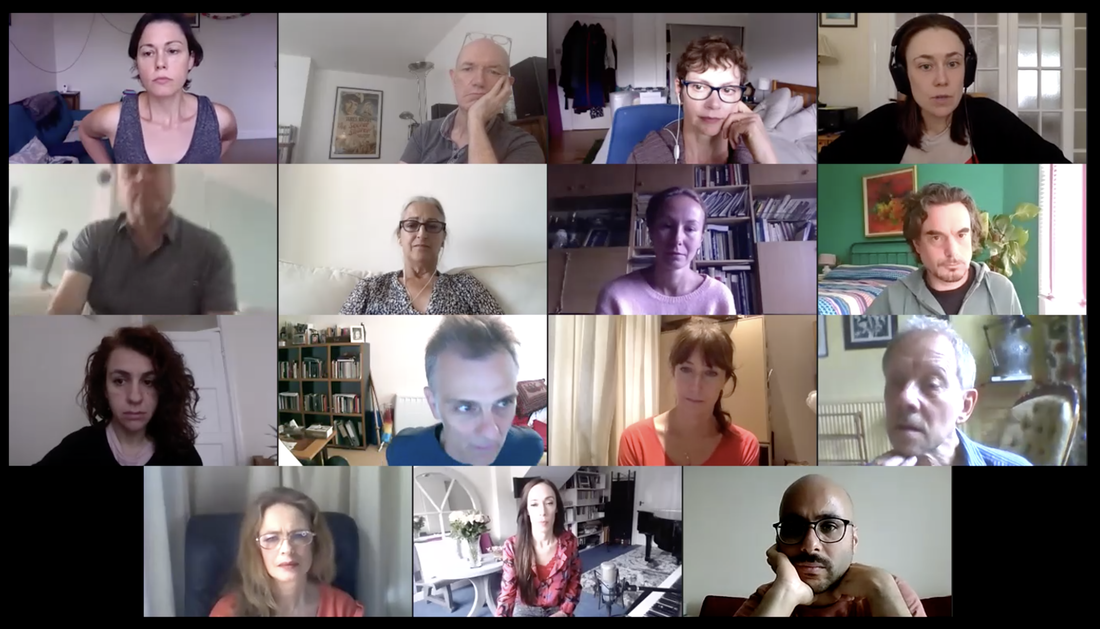
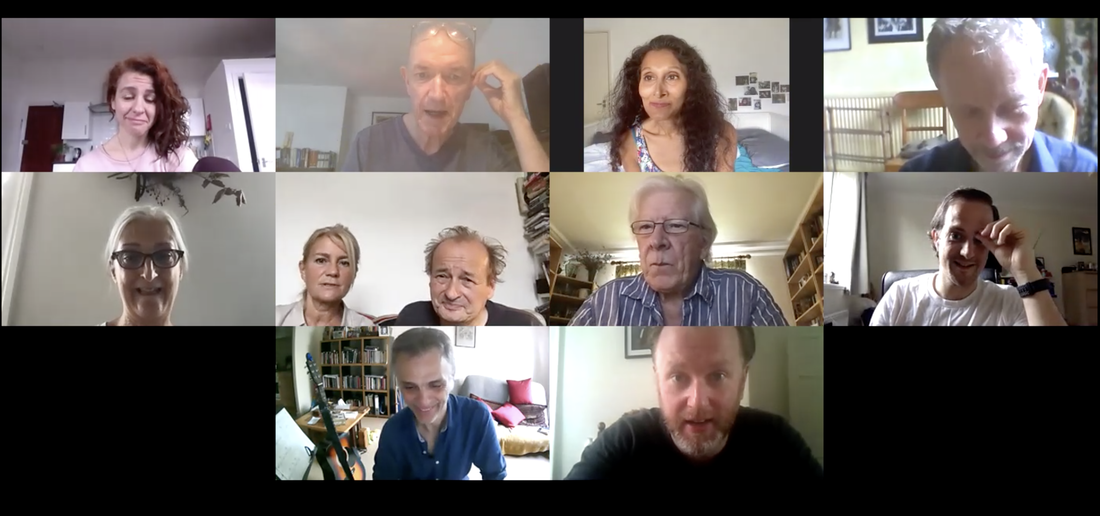
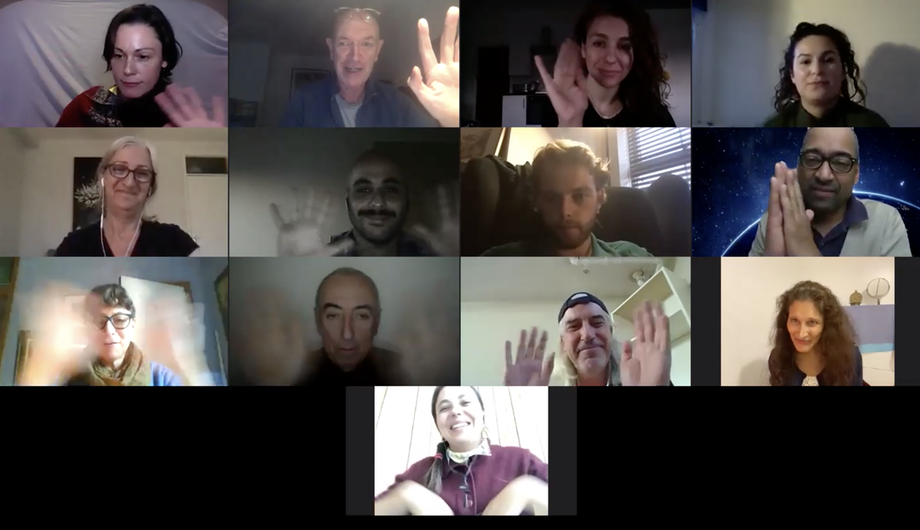
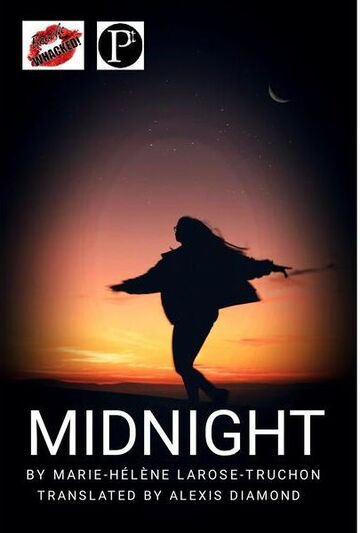
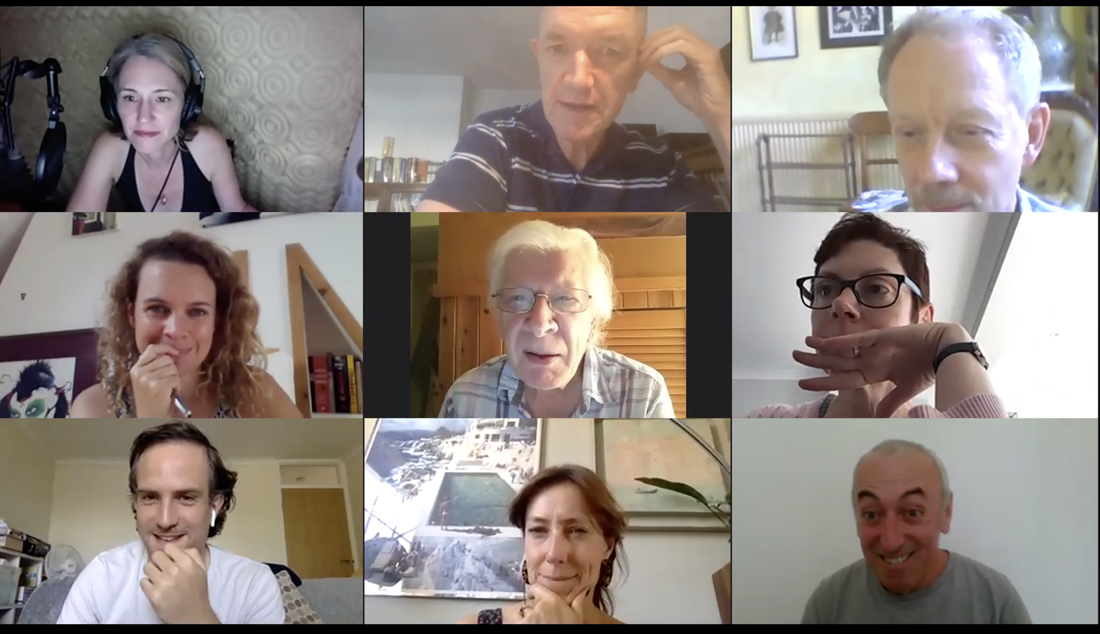
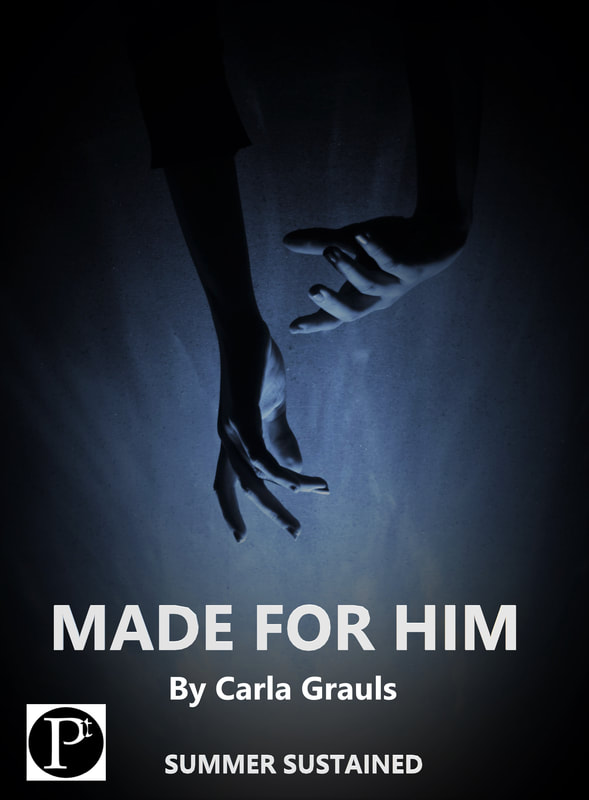
 RSS Feed
RSS Feed
